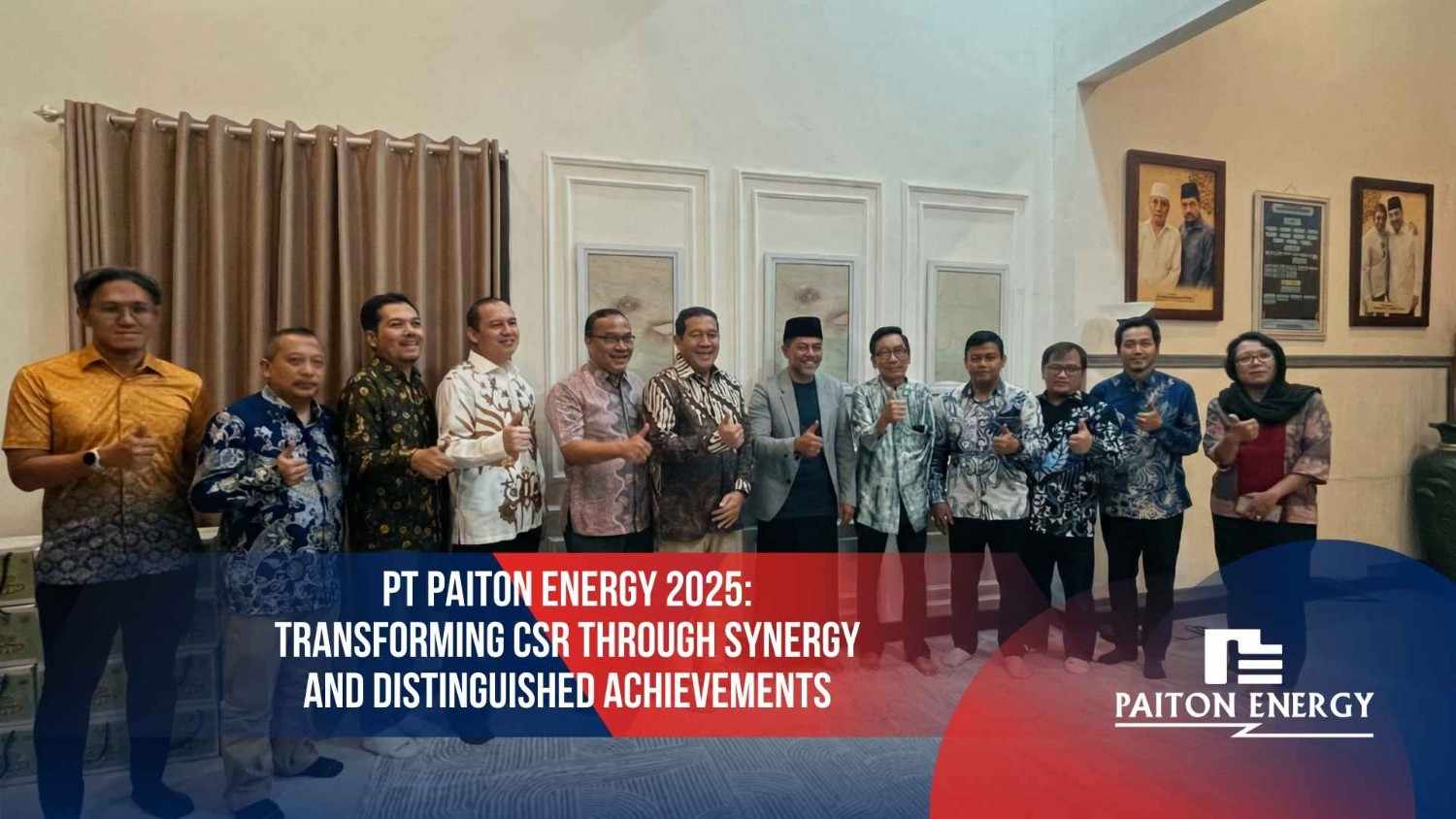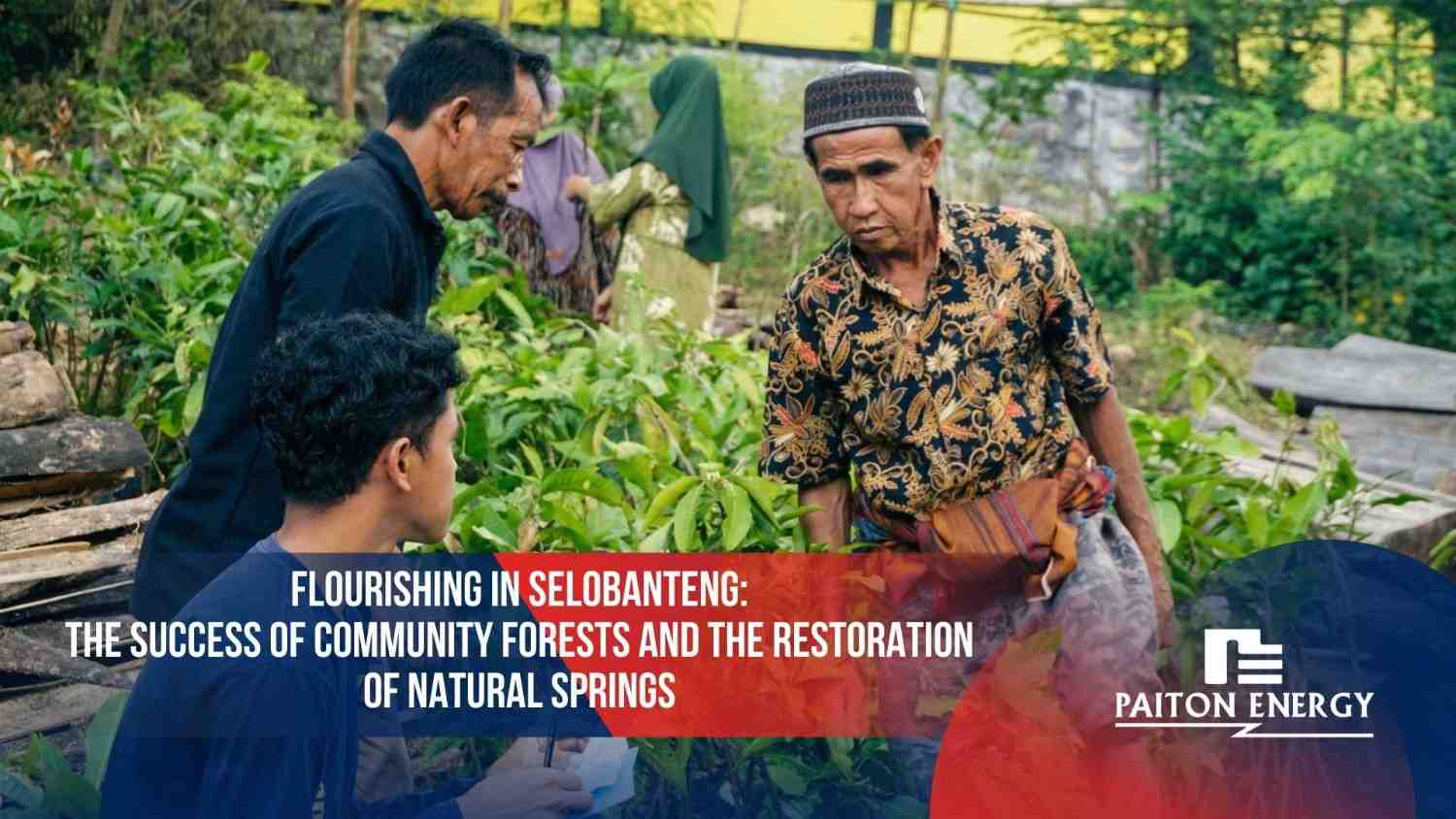PT Paiton Energy and PT POMI have reaffirmed their steadfast commitment to supporting sustainable development in Indonesia throughout 2025.
Under the flagship Paiton bErsiNERGY initiative—which adopts a Pentahelix collaboration model involving government, community, academia, business, and media—the Company’s Corporate Social Responsibility (CSR) programs have consistently exceeded regulatory standards. This synergy has delivered tangible impacts ranging from environmental conservation to community economic empowerment, evidenced by a series of prestigious awards earned throughout the year. This commitment underscores PT Paiton Energy’s strategic role as a responsible energy provider dedicated to environmental stewardship and societal well-being.
Environmental Innovation and Climate Change Mitigation
In 2025, PT Paiton Energy and PT POMI implemented several high-impact environmental programs. These efforts earned national recognition through the 2024 Green PROPER Award from the Ministry of Environment and Forestry, validating the Company’s consistency in “beyond compliance” environmental management, including energy efficiency, emission control, water conservation, and biodiversity protection.
Key environmental milestones include:
- Social Forestry & Reforestation: In collaboration with the Ministry of Forestry, the Company developed social forestry programs to increase land cover and alleviate poverty. By mid-2025, over 25,000 Gamal seedlings were planted in Special Management Forest Areas (KHDPK), serving as both carbon sinks and livestock feed for local farmers.
- Long-term Conservation: Continued restoration of the Selobanteng Community Forest in Situbondo. Since 2009, over 200,000 Teak and Gamelina trees have been planted, with an additional 13,600 Multi-Purpose Tree Species (MPTS) added in 2025.
- Watershed Protection: Partnering with the Indonesian Red Cross (PMI), the Company planted 4,500 fruit and decorative trees (Durian, Mangosteen, and Tabebuia) in the upstream areas of Ranu Segaran and Ranu Merah to strengthen ecosystem resilience and prevent downstream flooding.
Community Empowerment and the Circular Economy
PT Paiton Energy strengthened its multi-stakeholder ties by signing a Memorandum of Understanding (MoU) with the Probolinggo Regency Government. This strategic framework accelerates development in education, healthcare, economy, environment, and tourism.
Practical implementations of this synergy include:
- FABA Utilization: Supporting the “7 Ranu Ecotourism Festival” by providing 160,000 eco-paving blocks and 600 tons of Fly Ash and Bottom Ash (FABA). This initiative transforms industrial by-products into sustainable construction materials, fostering a circular economy.
- Educational Outreach: The “Beat Plastic Pollution” program engaged primary students in waste segregation and ecobrick production, instilling sustainable values in the next generation.
Distinguished Awards and Recognition in 2025
The Company’s innovative and inclusive CSR approach received widespread acclaim at international, national, and regional levels:
International & National Awards
- ASEAN Energy Awards (AEA) 2025: Winner in the ASEAN Best Practices for Green Buildings category.
- Paramakarya Productivity Award 2025: The highest honor from the Ministry of Manpower for superior productivity and mature management systems.
- Electrical Safety Award 2025: Recognized by the Ministry of Energy and Mineral Resources for excellence in electrical safety for power plants >200 MW.
- National Energy Efficiency Appreciation (PEEN) 2025: Awarded for Industrial Energy Management and Special Innovation.
Regional & Local Recognition
The Governor of East Java presented several prestigious awards, including:
- Forest Ecosystem Recovery Award: For real contributions to forest ecosystem rehabilitation through social forestry programs.
- Zero Accident Award: Recognition for the successful implementation of Office Occupational Safety and Health (K3) without accidents.
- Prevention and Mitigation of HIV/AIDS in the Workplace: Appreciation for the Company’s efforts in managing workforce health.
- Support for East Java CSR Forum: Award for support and consistency towards the East Java CSR Forum.
- Bronze Medal 5R/5S Competition East Java 2025: Productivity award for the application of 5R/5S principles in the work environment.
At the local and sectoral levels, the Company also received:
- Radar Bromo Award 2025: Establishing Hutaka as the new icon of Kraksaan City for its contribution to public space development and environmental education.
- KONI Award Probolinggo 2025: Award for the Company’s concern for the development of sports in Probolinggo Regency.
- Probolinggo Regent’s Award 2025: Recognition for the Company’s compliance in fulfilling Social Security obligations.
- World Clean Up Day 2025: Appreciation from the East Java Provincial Environmental Office for the Legundi River cleanup action.
- Support for the 61st National Health Day: Appreciation from the Ministry of Health BKK Probolinggo for support in the HKN badminton tournament.
- K3 Video Competition Winner: Winner from the Probolinggo District Health Office for the office and industrial K3 video category.
Through unwavering dedication, PT Paiton Energy not only ensures efficient energy operations but also consistently strengthens its contribution to environmental preservation and community prosperity, positioning itself as a leading partner in building a sustainable future for Indonesia.




